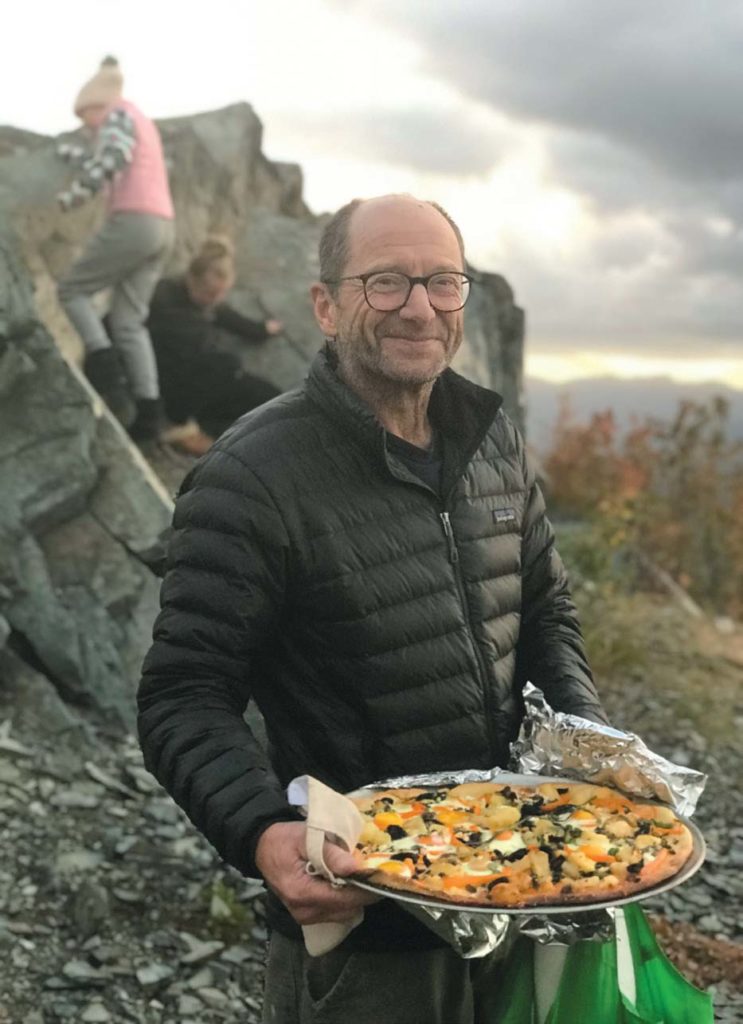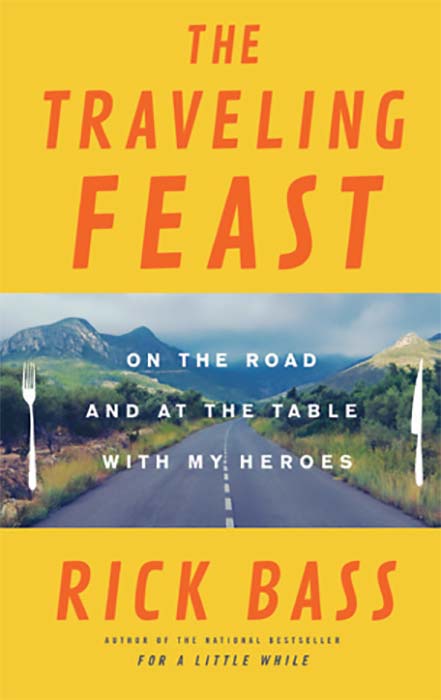On the Gifts (and Occasional Humiliations) of a Home-Cooked Meal
Backstrap with Morels Recipe
“Mercy or grace—the undeserved dispensation of favor—remains one of the great mysteries in our lives. Who gets what luck and when, and why?” asks Montana writer Rick Bass in The Traveling Feast (Little, Brown, 2018). He explains how the richness in his life seemed swept away by divorce, how he “lost his hunger not just for art but for most everything” in a tumultuous, lonely, and difficult time.
He took on a project: periodic journeys across the state and the country (and in one case, the Atlantic) to make home-cooked meals for the people he considers his “heroes,” most of whom are writers, and all of whom helped Bass in some way on his own path to becoming a writer. These people include Amy Hempel, David Sedaris, and Joyce Carol Oates, as well as fellow Montana authors Doug Peacock and Tom McGuane.
Bass himself is an award-winning author; his other titles include For a Little While, The Lives of Rocks, and Why I Came West. I interviewed him at a mutual friend’s house in Bozeman, where he spoke with me while he prepared a cheesecake. Our interview has been edited for clarity and length.

Rick Bass proffers a pizza in Montana’s Yaak Valley, where he makes his home. Photograph of Rick Bass courtesy of Carter Walker.
MM: Tell me how you came to cooking, and your commitment to local food.
RB: I got into cooking through Tom Douglas, the Seattle chef. He had a cookbook come out—Tom Douglas’ Seattle Kitchen— and everything in it was stuff I loved: fish from the Northwest and berries and fungus and cheese. It was a great book, and was easy to use. There’s another chef from Boston, Gordon Hamersley, who’d come out and visit the Yaak [Valley] sometimes. He’d come over to our house and make these incredible meals. I got confident in my kitchen and with my recipes in front of me. What helped me with the transition to begin cooking was how, when someone writes well about food, it’s a doubly pleasing experience: You get to imagine the meal and you also get to relish the way the words are put on paper.
Food doesn’t travel well. If you want to make a beautiful, delicious meal, you want everything on your side—you don’t want [ingredients] fighting heat, fumes, sunlight. I didn’t come to local and organic as part of a commitment to reduce my fossil [fuel] footprint. I’m not diminishing people who come to it because of that—it just wasn’t my entry point.
Why did you choose a prepared meal as a means of giving thanks?
I loved how tangible it was. The specialty of food appeals to my aesthetics, sensibilities, and taste. To say, “Your work has meant a lot to me” or “I’ve been reading you for forty years”—that’s an abstraction.
Though you received words from your mentors, you’re choosing not to respond in kind. You could have spent weeks composing the most beautiful thank-you letter possible—it seems here you want to embody something through a meal, and with your presence.
If they were younger and burly I probably would’ve said, “Let’s go take a hike,” but they’re older, so I wanted to bring something physical to them and share it. I couldn’t bring them to my valley to show them morels in May and June, the birds and mammals in the fall, so I carried them with me.

A number of your meals were huge successes. Some were what might be called failures.
Or humiliations?
I’m thinking of the quail and pine nut for David Sedaris, and the turkey fiasco at Tom McGuane’s. I’m wondering if you have a philosophy about culinary failure—a way to think about it, think through it, deal with it.
The advice I have is to own it, wholeheartedly. I used to get so irritated with chefs who would obviously put a lot of work into something, but were so self-critical. As soon as the first round of compliments came, the chef would invariably say, “No, you don’t know what you’re talking about.”
So “own it” means own your mess-ups, and own your successes. It means if something comes out well, you should say, “It is good, thank you!” On another note, do you have tips for people who might want to do what you did—bring wild game to people who live outside Montana?
Take the thing you love most with you. You could wait twenty years for them to come out and taste the meat here. I love that the taste is so variable—when it’s just out of the skillet, when it’s cooling, when it’s cold. You have to really abuse wild meat to spoil it. Don’t be afraid to carry a pheasant with the feathers on and the guts in if you go somewhere.

